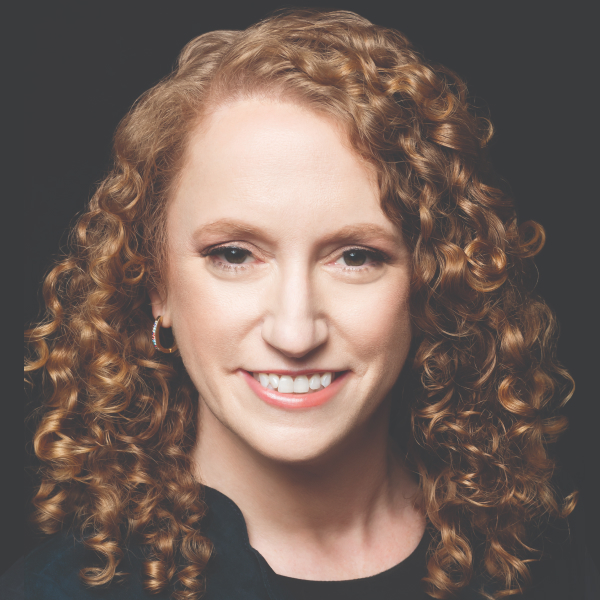Event recap
In 2024, three critical issues in higher education guided this year’s program: the challenges and opportunities of artificial intelligence, dialogue and free speech on college campuses, and designing experiential learning opportunities. Keynote speakers and plenaries, invited workshop leaders, faculty and student panels, and practical workshops speaking to these themes underscored Georgetown’s commitment to understanding and shaping the evolving landscape of higher education. 417 faculty, staff, graduate student instructors, and guests from neighboring institutions attended TLISI on our hilltop campus and participated virtually throughout the week.
We’d like to again thank the entire Georgetown community for joining us at TLISI. The complete event report is available below, as are recordings of keynotes and workshops/sessions.
Plenary sessions

FACULTY PANELISTS EDILMA YEARWOOD, ADAM ROTHMAN, JEREMY KOONS, AND UNDERGRADUATE STUDENT CHANTAL LI (SFS ’25)
Panel on Georgetown’s Race, Power & Justice course pilot
CNDLS Executive Director Edward Maloney welcomes participants to TLISI 2024 then hands it off to a moderated panel with faculty and students who piloted Georgetown’s new Race, Power & Justice seminar, part of the new Pathways to Social Justice curriculum. This panel featured faculty who piloted Georgetown’s new Race, Power & Justice seminar, part of the new Pathways to Social Justice curriculum. They, along with one student who took the class, shared their experiences and lessons learned from this innovative 1-credit course that all entering Georgetown students will take starting fall 2024.

jeanine turner, PhD
Promoting intentional dialogue at Georgetown in a post-audience world
Digital devices, hybrid working and learning environments in response to the pandemic, and communication platforms have provided great flexibility and have reshaped the way we interact. In many ways, the pandemic has accelerated digital demands on our time and created a focus on efficiency rather than reflection and dialogue. This virtual session described a framework that recognizes the outside pressures that we face to help us to be more intentional in the way we are present with one another and work towards co-creating the types of environments that promote dialogue and understanding.
Turner’ book on this topic, Being Present: Commanding Attention at Work and at Home by Managing Your Social Presence (Georgetown University Press 2022) provides strategies for addressing the challenges of engaging attention in a world of digital devices, earning a 2022 Gold Medal Axiom Publishing Award given to promising business titles.
This workshop was not recorded.

Suzanne Nossel, JD
Dare to speak: Defending free speech on college campuses
Suzanne Nossel joined us for a conversation with Georgetown Provost Robert Groves, who contextualized our campus for a discussion around free expression issues. Following the back and forth conversation with Provost Groves, the conversation opened up to include TLISI participant questions.
Nossel is the Chief Executive Officer of PEN America, the leading human rights and free expression organization and is a leading voice on free expression issues in the United States and globally. She is author of Dare to Speak: Defending Free Speech for All.

Cal newport, phd
Teaching and learning with AI: A conversation with Cal Newport and Eddie Maloney
Building on the many conversations at Georgetown about generative AI and how it is transforming teaching and learning, Georgetown Professor Cal Newport, Provost’s Distinguished Associate Professor of Computer Science, and CNDLS Executive Director Edward Maloney discuss AI on Georgetown’s campus and in higher ed more broadly. This keynote follows mainly a Q&A style conversation, responding to audience questions submitted in advance and posed during the session. Cal Newport is the author of eight books, including Slow Productivity, A World Without Email, Digital Minimalism, and Deep Work.
Recorded sessions
May 20, 2024
AI Use Cases in Teaching Across Georgetown University
Laura March, Purna Gamage, Kim Grimmick, James Hickman, Toni-Lee Sangastiano, Elissa Redmiles, Joe Vallone
Trauma-Informed Practices for Teaching and Learning
Joselyn Lewis, Nafisa Isa, Caitlin Gunn
Learning by Doing: Faculty Perspectives on Experiential Learning in Online Environments
Zhuqing Ding , Janet Gomez, John Trybus, Qi Chen, Jim Freericks, Babak Zafari, Carole Hemmelgarn
Student Perspectives On Learning Together
Jordan Davis, Billie Abdullah, Sara Hewitt, Isabel McHenry, Joan Riley
Toward a Framework for Teaching AI, Leadership & Collaboration in a Professional Education Context
Wendy Zajack, Melissa Netzband, Frederic Lemieux, Uwe Brandes, Linda Dunn
May 21, 2024
Learning to Live with AI : Enhancing writing and critical thinking across the disciplines
J Palmeri, Sarah Jane Grizi
Our City is Our Classroom: Experiential Learning Integration at Georgetown
Susannah McGowan, Doireann Renzi, Melissa Bernard, Randy Bass
CNDLS Review of Piloted Tools to Advance Experiential Teaching and Learning with Technology
Jason Kramer, Maria Getahun, Peter Janssens, Sabrina Wang
AI in Research Practice (Coming soon)
Melissa Netzband, Jess O’Toole
Digital Research & Innovation Faculty Panel
Suzanne Chase, Benjamin Harbert, Michelle Wang, Nicoletta Pireddu
May 22, 2024
Full Time Non-Tenure Line Faculty (FTNTL) Town Hall
Astrid Weigert
Real-World AI Scenarios in Academic Integrity
Ali Whitmer, Alex Theos
Teaching Georgetown’s History of Slavery, Memory and Reconciliation
Adam Rothman, Bernard Cook, Mary Beth Corrigan, David Ebenbach , Molly Chehak
Embodied Education for Ecological Belonging
Ashanee Kottage, Akanksha Sinha
Evolving Your Relationship with AI by the Creative AI Academy
Tony Jones, Dominik Heinrich


